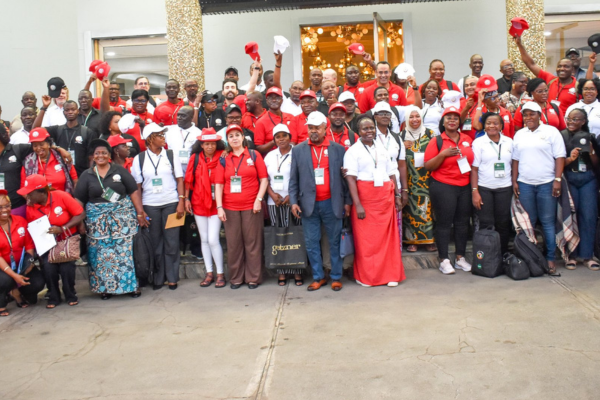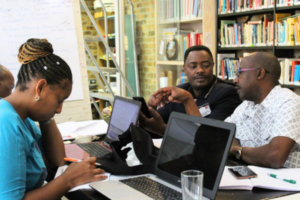Photo: ITUC-Africa affiliates and partners at the 2025 New Year School held in Côte d’Ivoire in February. LRS facilitated a Commission on "Strengthening labour provisions in the AfCFTA - Leveraging trade union action for decent work and fair trade.
Trade is about capital and labour. Without workers at the table, inclusive growth is impossible. This is an update on our work supporting trade unions advocating on the African Continental Free Trade Area.
ITUC-Africa and union affiliates in nine African countries, along with the Labour Research Service, are campaigning for decent work and social inclusion in the African Continental Free Trade Area (AfCFTA). Trade liberalisation under AfCFTA does not automatically benefit workers without active trade union involvement.
Influence starts at the national level
We are building union capacity in trade and advocating for social dialogue in AfCFTA member states.
For trade unions, it is essential to influence the AfCFTA at the national level, as implementation occurs through national committees. In 2024, inspiring examples of union influence emerged as the Trade Union Congress of Namibia (TUCNA) and the Central Organisation of Trade Unions – Kenya (COTU-K) secured commitments from their respective trade ministers to include them in the AfCFTA National Implementation Committees.
Namibia
In November, the Namibian Minister of Industrialisation and Trade welcomed TUCNA to the AfCFTA National Implementation Committee, following advocacy efforts by the federation, supported by ITUC-Africa and Labour Research Service.
Early engagements with ministry officials revealed gaps in understanding the role of trade unions and the labour provisions in trade agreements. TUCNA responded by educating government officials and presenting evidence from a national study on the likely impacts of AfCFTA on workers in Namibia. TUCNA’s advocacy also secured a workers’ seat at the Namibia Trade Forum, with plans to push for union representation in sector-specific trade forums.
“Do not assume stakeholders know what you do. Begin with the basics and educate them until they understand who you are and why they should listen. This approach has been effective with the Ministry of Trade, the Bank of Namibia, and the Ministry of Finance. Now that the door is halfway open, we must be prepared to use the opportunity to influence.”
- Mahongora Kavihuha, TUCNA General Secretary.
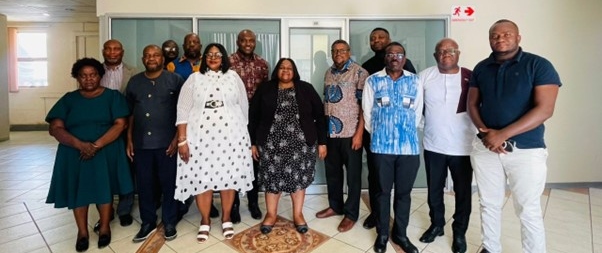
ITUC-Africa delegation, TUCNA team and Ministry of Industrialisation and Trade officials | November 2024, Windhoek.
Kenya
COTU-K secured a commitment from the Cabinet Secretary for Trade, Investment and Industry to include unions in Kenya’s AfCFTA National Implementation Committee. COTU-K strengthened its AfCFTA advocacy by drawing on years of experience in trade negotiations, including the EU Economic Partnership Agreement, AGOA, and the East African Community. COTU-K is steadily building trade expertise and advancing cross-border solidarity as a strategy for influence.
“Trade is about capital and labour. We cannot truly achieve inclusive growth if workers are left behind. The Women and Youth Protocol is a welcome signal that no one should be excluded. But to ensure women in trade can thrive, we need more than aspirational language; we demand gender mainstreaming and actionable commitments.”
- Rose Omamo, COTU-K Board Member and Deputy President of ITUC-Africa.
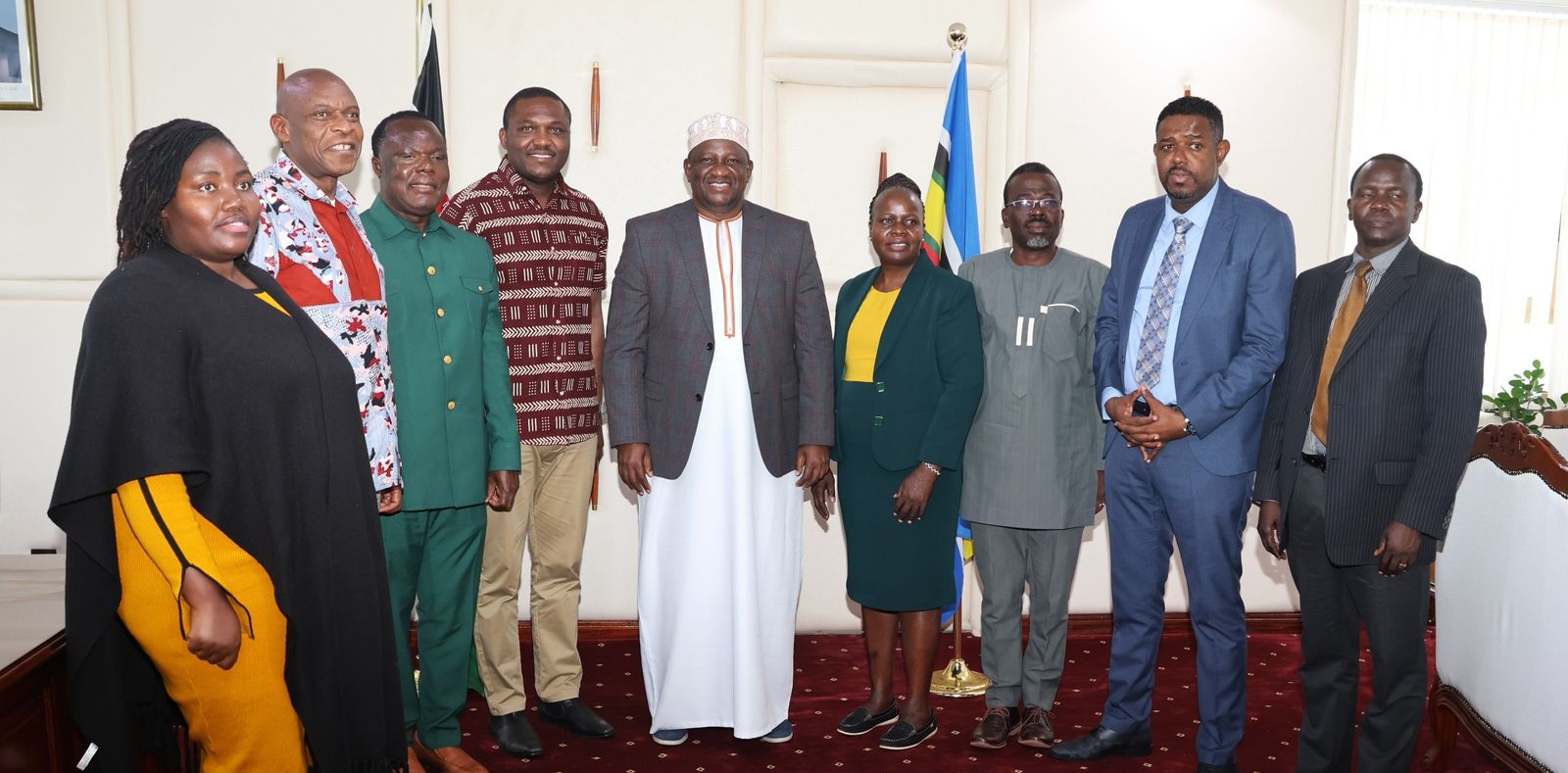
ITUC-Africa delegation, TUCNA team and Ministry of Investments, Trade Industry officials | November 2024, Nairobi.
Building online presence and campaign momentum
We built the online profile of our work on trade unions and trade and continue a coordinated continental campaign in 2025.
We provided tailored support to national centres, taking into account varying capacity levels across the continent.
Social media engagement and awareness increased across nine project countries through targeted campaigns.
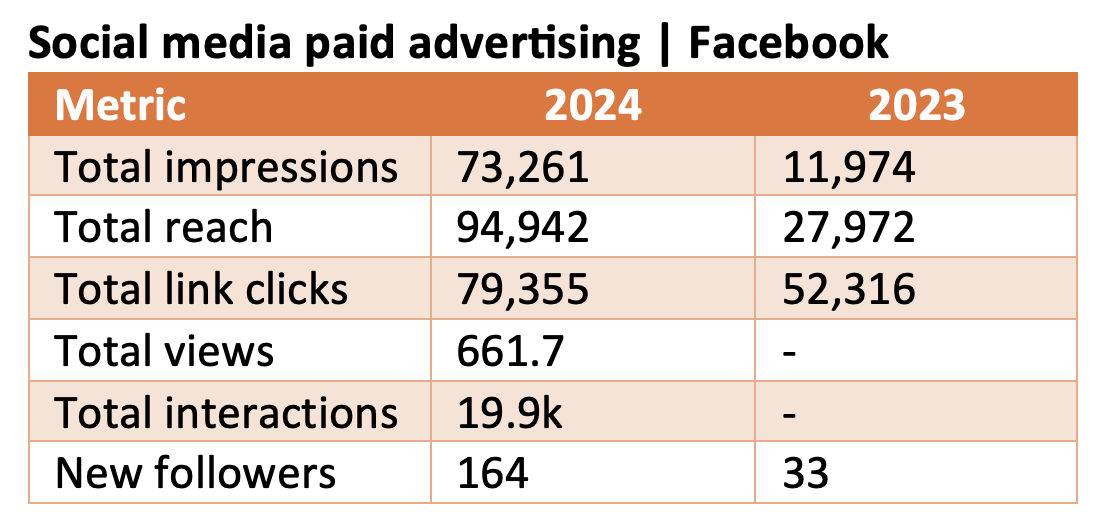
The Trade Unions in Trade and AfCFTA knowledge hub shows steady growth over time.

Trade resources for unions, by unions
We created quality trade resources in English and French, working closely with union partners across nine countries. The resources are strengthening union capacity, supporting advocacy, and enabling effective participation in AfCFTA processes at national, regional, and continental levels.
Publications in 2024:
- Country Trade Fact Sheets (Ghana, Nigeria, Senegal, Chad, Tunisia, South Africa, Namibia, Kenya, and Rwanda).
- Update on AfCFTA Negotiations for African Trade Unions
- Guide to the AfCFTA Protocol on Trade in Services
- Podcast episode introducing trade unionists to global trade through the experience of the South African Clothing and Textile Workers Union (SACTWU). Listen here or watch video.
Alliance building
We are in conversation with key actors in African trade policy, including the Nelson Mandela School of Public Governance (UCT), Trade and Industrial Policy Strategies (TIPS), and Third World Network.
The Executive Director of Labour Research Service sits on a technical subcommittee on trade within NEDLAC, the statutory social dialogue platform in South Africa.
"We are deepening our support of trade union advocacy work on trade, whether they have been invited into a national implementation committee or remain outside of such structures in the meantime. We are co-creating quality audio-visual material to help raise the profile of national centres on trade issues. We are focusing on a leadership layer in the advocacy on international trade issues."
— Trenton Elsely, Executive Director, Labour Research Service
Project partners:

Key contact: Trenton Elsely – [email protected]


